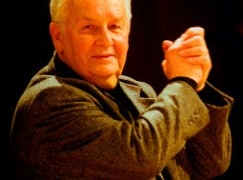40 years on, Gorecki’s grandson conducts his 3rd symphony
mainNot many know that a symphony which went on to sell a million records had its first performance in October 1976 in a church in Bielsko-Biała, with the composer conducting.
Next week, the symphony will be reprised by Bielsko-Biała Festival Orchestra, conducted by Jan Stańczyk, the composer’s grandson, who is making his podium debut.






Comments